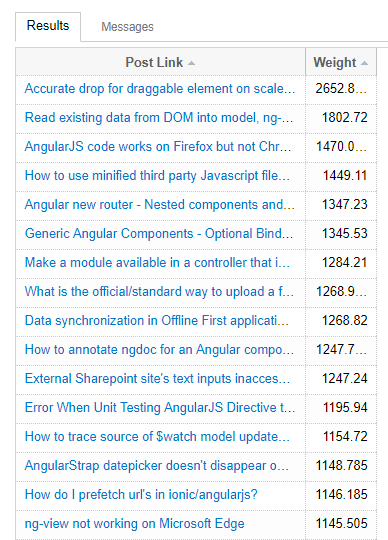I have forked the original query as created by sam.saffron (also known as waffles) and made the adjustments to allow specifying a single tagname without sacrificing the other logic of the query.
This is what my version of the query looks like:
-- Find interesting unanswered questions
-- Looks at unanswered questions in your top 20 tags
-- or a specific tag
-- sorts them by
-- a combined weight which takes into account: score, askers reputation and how
-- well you do on that particular tag
DECLARE @UserId int = ##UserId##
-- tagname parameter
DECLARE @Tagname nvarchar(35) = '##Tagname?(none)##' -- we don't know null in SEDE
create table #tags (TagId int, [Count] int)
insert #tags
SELECT TOP 20
TagId,
COUNT(*) AS UpVotes
FROM Tags
INNER JOIN PostTags ON PostTags.TagId = Tags.id
INNER JOIN Posts ON Posts.ParentId = PostTags.PostId
INNER JOIN Votes ON Votes.PostId = Posts.Id and VoteTypeId = 2
WHERE
Posts.OwnerUserId = @UserId
-- handle if the default tagname is used
-- or handle if an actual tagname is used
AND (@tagname = '(none)' OR Tags.tagname = @tagname)
GROUP BY TagId
ORDER BY UpVotes DESC
create table #unanswered (Id int primary key)
insert #unanswered
select q.Id from Posts q
where (select count(*) from Posts a where a.ParentId = q.Id and a.Score > 0) = 0
and CommunityOwnedDate is null and ClosedDate is null and q.ParentId is null
and AcceptedAnswerId is null
select top 2000 u.Id as [Post Link],
(sum(t.[Count]) / 10.0 + us.Reputation / 200.0 + p.Score * 100) as Weight
from #unanswered u
join Posts p on u.Id = p.Id
join PostTags pt on pt.PostId = u.Id
join #tags t on t.TagId = pt.TagId
join Users us on us.Id = p.OwnerUserId
group by u.Id, us.Reputation, p.Score
order by Weight desc
Notice that the tagname parameter requires the text (none) to be entered if you want the behavior from the original query. SEDE doesn't allow you to submit a form if not all parameters have a value.
When run today the result for your userid and tag angularjs is:

Keep in mind SEDE is only updated once a week, on Sunday.
If you want to teach yourself how to use SEDE, do try the SEDE Tutorial as offered in a comment by Robert Longson. Feel free to give it a try and provide feedback for the creators.
Beyond that you might find Interesting queries on Data Explorer and Useful Data Queries useful as well as the Database schema documentation for the public data dump and SEDE once you mastered the basics.

